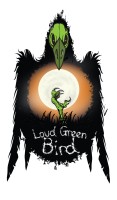
“Do you know the world is a foul sty?” In Alfred Hitchcock’s Shadow of a Doubt (1943), this line is Uncle Charlie’s (Joseph Cotten) summary opinion about earthly existence, as expressed to his niece, Charlie (Teresa Wright), in a dive bar in her hometown. Hitchcock goes on to show how the small-town American family can hide its participation in worldly corruption (in particular, its perversion of sexuality) behind a veneer of respectability. In Stoker (2013), Chan-wook Park (Oldboy, 2003; Thirst, 2009) draws back the veil that covers the dark underside of family psychosexual dynamics, a subject to which Hitchcock’s era allowed the Master of Suspense only to allude. Park takes all the hidden subtexts of the relationships within the Newton family — in particular, between its doubles, the two Charlies — and makes them overt. Although it’s not a remake, Park’s film certainly qualifies as an intense homage to Hitchcock’s favorite and arguably most personal text in his filmography.
In the diegesis of Park’s movie (written by actor-screenwriter Wentworth Miller), the family’s name changes to Stoker. This allusion to author Bram Stoker is a deliberate reference to the vampiric nature of Uncle Charlie (played here by Matthew Goode). Hitchcock’s portrayal of Uncle Charlie connects him to the figure of Count Dracula, especially in the first sequence of Shadow of a Doubt in which the former character appears. As in the Hitchcock movie, the two “Charlies” seem to have a telepathic connection; the young India Stoker (Mia Wasikowska) appears to have summoned her uncle. Ever the horror auteur, Park extends vampiric qualities to India as well. She has acute senses of sight, hearing, and touch. When India and her uncle are together, their connection takes on an erotic tinge. Merely when engaged in conversation, their eyes gleam as if invested with a demonic (or is “maniacal” a better term?) glow.
Uncle Charlie arrives at the Stoker family home just after the untimely death of his brother, Richard Stoker (Dermot Mulroney), in a horrific car crash. In the Hitchcock film, young Charlie’s father is named Joe and does not die, although he is so ineffectual as a patriarch that he might as well be dead. As with Joe’s wife (Charlie’s mother), Emma (Patricia Collinge), there is an undercurrent of incestuous attraction between Uncle Charlie and Richard’s widow, Evelyn (Nicole Kidman). With Hitchcock, that’s all that the audience gets (after all, Emma is Uncle Charlie’s sister in Shadow of a Doubt). Here, Evelyn is Uncle Charlie’s sister-in-law, so things can go a bit further.
In Shadow of a Doubt, Uncle Charlie is a serial murderer who kills “Merry Widows” out of rage at their autonomy. He believes that widowed women take advantage of their husbands by spending their hard-earned money after they drop dead from exhaustion. This affront to patriarchy infuriates him. In Stoker, Uncle Charlie also brings death to his family, but the situation is more complicated and more organic to the Stoker family’s history than in Shadow of a Doubt. Since Stoker was made in the 21st Century by a director more famous for violence than suspense, its murders occur on screen, in full view of the spectator’s gaze, rather than in the backstory.
Unlike Charlie Newton, who has only an unconscious wish to have her mother all to herself by somehow getting rid of her father, India Stoker actually achieves this female Oedipal victory, albeit in an involuntary fashion. In contrast to her Hitchcockian doppelganger, however, she had a very positive relationship with her father before his death; her mother is the distant and uninvolved parent. More importantly, her father taught her certain skills that prove to be key elements of the climax of the film. But she also might have inherited qualities that her uncle possesses. And she is not as innocent as young Charlie. As in Shadow of a Doubt, the ultimate conflict in Stoker is between uncle and niece, who are more alike than either realizes. The reader will have to watch the film to see how Park makes the outcome of this conflict his own while remaining true to Hitchcock’s vision. I think Hitch would have been pleased.


